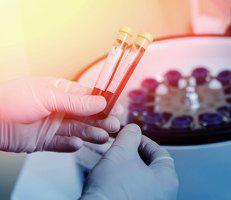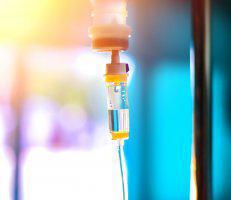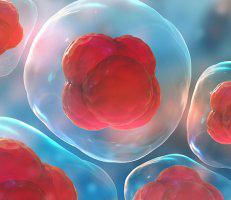- Renew Total Body Wellness Center
- Contents
- Hormones
- Men's Hormones
Andropause, The Male Menopause
Andropause, also known as the male menopause or “MANopause”, is a real condition for men. But, unlike menopause in women, in which the body halts production of estrogen, men experience a gradual loss of sex hormones starting around 30. By the age of 80, about half of men have low testosterone levels, although the hormone never completely stops.
Men need to learn that it is possible to lose weight, regain youthful physiques, and restore health, energy, and sexuality. In many cases, bioidentical hormones can be part of the solution. Symptoms of low testosterone manifest in a number of ways including physical, emotional, psychological and behavioral changes. Men frequently notice male menopause symptoms as a gradual loss of energy, muscle, mental focus, stamina and libido. Experts directly relate low testosterone to causes of low sex drive. Although a decline in hormone levels will occur in virtually all men with age, there is no way of predicting whose symptoms will reach the severity of seeking medical help.
Signs of Andropause
- Irritability
- Trouble Making Decisions - Executive Function
- Memory Loss
- Low Mood or Depression
- Sleep problems
- Diminished libido
- Erectile problems
- Muscle loss
- Insulin Resistance
- Weight gain
- Thinning hair
- Decreased bone density
Statistics on Andropause: The Male Menopause
Suffering from symptoms of low testosterone? According to the US Census Bureau, approximately 4-5 million men have symptoms of low testosterone levels and only 5-10% of these men will seek treatment.
A recent World Health Organization (WHO) report stated “male androgens progressively decline with age.” The report analyzed male hormones and found that the testosterone level in most 70 year old men was 10 percent of the level in males that are 25 years old. By the time men are between the ages of 40 and 55, they can experience symptoms similar to female menopause, which in men is known as the male menopause or andropause. The symptoms of andropause include changes in body mass, resulting in less muscle and more fat, changes in attitudes and moods, fatigue, a loss of energy and sex drive, as well as physical agility.
Male menopause symptoms are also associated with stress levels, nutrition quality, fitness routine and the environmental toxins the body is exposed to on a daily basis.
Andropause Exams and Tests for Men
To determine your hormonal needs, Dr. Rohde will thoroughly evaluate your symptoms using state-of-the-art diagnostics including saliva, blood, and/or stool and urine labs to determine your hormone levels and your unique bioidentical hormone needs. After starting bioidentical hormone therapy Dr. Rohde monitors and re-evaluates your hormone levels to insure that safe levels and optimum balance is maintained.
Which hormones and levels do we test?
Testicular Hormones – What makes you a man
- Testosterone – The total amount in your system, including Free Testosterone or how much is actively available to your body
- Dihydrotestosterone – The total amount of used testosterone in your body
- Estrogen – To make sure it’s not too high
- PSA – Prostate specific antigen – your prostate health
Adrenal Hormones – Your immune system, your energy level, and your ability to handle stress
- Cortisol – the stress hormone
- DHEA – the “mother of all hormones” used by the body to heal and restore and is the precursor for you sex hormones
Thyroid Hormones – Your Energy and Metabolism
- Thyroid Stimulating Hormone (TSH)
- Free T4
- Free T3
- Reverse T3
- Thyroid Antibodies
Your Body’s System
- Complete blood count, complete metabolic profile, Hemoglobin A1C, Insulin and Lipid Panel
- Vitamin D, Iron, B12, Folate
Other Tests
Dr. Rohde may suggest other tests for you depending on your consultation and examination. These include environmental toxins, Mycotoxins, Heavy Metals Challenge test, and an Organic Acids Profile.
Treating Male Hormone Imbalance
Dr. Rohde uses a three part approach to treat males with a hormonal imbalance including male menopause symptoms. First, he replaces exactly what is missing or low with the body’s appropriate bioidentical hormones. Testosterone can be replaced in multiple ways by use of Implantable pellets, injections, or compounded topical creams. Second, hormone balance must be integrated with improvement of nutrition and when needed to treat overweight, an evaluation with a dietician and/or our supervised medical weight loss program. Finally, a vital element is a regular exercse/fitness program to maximize success.
We will closely monitor every patient, evaluating symptoms and using laboratory tests to determine and then fine tune each patient’s customized dose. We order only from the finest and most reputable compounding pharmacies to obtain the exact combination of hormones required to achieve your hormonal balance.
Studies Show Low Testosterone Linked to Higher Mortality
Study 1:
Maintaining balanced levels of testosterone can make you live longer. That is what a large study shows, linking low testosterone to higher mortality in older men and Dr. Rohde agrees. I practice and educate my patients about the importance of balanced levels of testosterone and how to best take advantage of the science of anti-aging medicine such as bioidentical hormone therapy.
In an eight-year analysis of male veterans, nearly 35 percent of men with low testosterone levels died, versus around 20 percent of men with normal levels of testosterone, a hormone responsible for maintaining muscle bulk, red blood cell counts, bone growth, mental well-being and sexual function.
The study, published in the August 2006 issue of Archives of Internal Medicine is the largest one to date to make the association between lower testosterone and higher mortality.
Study 2:
Low serum testosterone levels may be associated with an increased risk of death from cardiovascular causes and cancer, independent of age and other risk factors, according to a recent population-based study. German investigators examined data from 1,954 men recruited for the prospective-based Study of Health in Pomerania. At baseline, men were aged 20-89 years with known serum testosterone levels. The prevalence of diabetes mellitus, hypertension, and metabolic syndrome was higher in this group compared with men who had normal testosterone levels. After adjusting for age, BMI, waist-to-hip ratio, smoking habits, high-risk alcohol use, and physical activity, the researchers found that men with low testosterone levels had a 2.6 times greater risk of dying during the next 10 years compared with men who had higher testosterone levels.
Study 3:
Testosterone insufficiency in older men is associated with increased risk of death over the following 20 years, independent of multiple risk factors and several pre-existing health conditions. Department of Family and Preventive Medicine, School of Medicine University of California, San Diego, La Jolla, California 92093 – October 2, 2007
What we offer
Services
LOCATION
- Renew Total Body Wellness Center
- 3798 E. Fulton Avenue
- Decatur, IL 62521
- Phone: 217-864-2700
- Fax: 217-422-0004
OFFICE HOURS
- Monday 8:00 - 12:00, 1:00 - 5:00
- Tuesday 8:00 - 12:00, 1:00 - 5:00
- Wednesday 8:00 - 12:00, 1:00 - 5:00
- Thursday 8:00 - 12:00, 1:00 - 5:00
- Friday Closed
- Saturday Closed
- Sunday Closed








